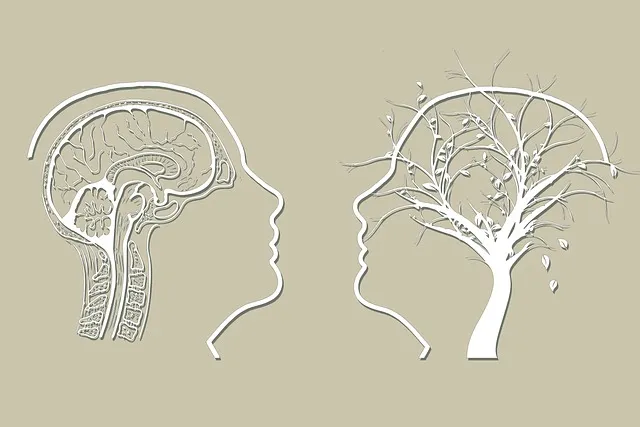Trauma from accidents or disasters profoundly impacts mental well-being, leading to flashbacks, nightmares, and anxiety. Kaiser Permanente's superior mental health coverage combats this through comprehensive services, including specialized therapists trained in trauma-informed care. This approach creates safe spaces for healing, reduces stigma, and teaches effective coping strategies. By combining initiatives like Mental Illness Stigma Reduction Efforts and evidence-based practices like Mental Wellness Journaling Exercise Guidance, Kaiser Permanente supports individuals dealing with trauma, offering a range of services from social skills training to CBT for long-term anxiety relief and resilience. Further enhancements focus on community outreach programs tailored to marginalized populations' cultural needs, expanding access to care in underserved areas.
“In a world where trauma is a pervasive reality, understanding its profound impact on individuals and communities is paramount. This article explores the critical role of trauma support services and delves into strategies for their effective provision. With a focus on superior mental healthcare access, we examine Kaiser Permanente’s comprehensive mental health coverage as a model for transforming lives. By unraveling the complexities of trauma and its effects, we aim to equip readers with insights into enhancing support systems, ultimately fostering resilience and healing.”
- Understanding Trauma and Its Impact
- Kaiser Permanente Mental Health Coverage: A Comprehensive Look
- Enhancing Trauma Support Services: Strategies for Effective Provision
Understanding Trauma and Its Impact

Trauma is a profound and complex experience that can profoundly impact an individual’s mental health and overall well-being. It stems from various sources, including severe accidents, violent acts, natural disasters, or prolonged exposure to distressing events. Understanding trauma is the first step in providing effective support. Many individuals who have experienced trauma may exhibit symptoms such as flashbacks, nightmares, heightened anxiety, and difficulty regulating emotions. These reactions are often a manifestation of their brain’s response to protect them from further harm.
At Kaiser Permanente, mental health coverage plays a pivotal role in addressing trauma. Through comprehensive services, they aim to empower individuals to heal and rebuild their lives. Superior mental health coverage ensures accessibility to specialized therapists and counselors trained in trauma-informed care. This approach involves creating safe spaces where survivors can process their experiences, reduce the stigma associated with mental illness, and develop effective coping strategies. The Mental Illness Stigma Reduction Efforts, coupled with evidence-based practices like Mental Wellness Journaling Exercise Guidance and improved Communication Strategies, can greatly benefit those affected by trauma.
Kaiser Permanente Mental Health Coverage: A Comprehensive Look

Kaiser Permanente’s mental health coverage stands out as a superior program designed to holistically support individuals dealing with trauma and related issues. This comprehensive offering includes access to a wide range of services tailored to address various aspects of mental wellness, from social skills training to emotional regulation techniques. The program prioritizes long-term care, ensuring that members have the tools needed for anxiety relief and overall psychological resilience.
Within Kaiser Permanente’s framework, specialized therapists and counselors play a pivotal role in guiding patients through the process. They offer evidence-based therapies, such as cognitive behavioral therapy (CBT), to help individuals navigate trauma’s aftermath. Moreover, the coverage extends beyond traditional therapy sessions, incorporating innovative techniques for stress management and coping strategies tailored to each member’s unique needs. This multi-faceted approach underscores Kaiser Permanente’s commitment to delivering superior mental health support.
Enhancing Trauma Support Services: Strategies for Effective Provision

Trauma support services require strategic enhancements to ensure their effectiveness and reach. One key approach is integrating Community Outreach Programs that connect with individuals and communities most affected by trauma. These programs can be tailored to address specific cultural sensitivities within mental healthcare, fostering safer and more welcoming environments for marginalized populations.
By leveraging Kaiser Permanente mental health coverage as a foundation, these initiatives can expand access to care, especially in underserved areas. This involves not only increasing the availability of services but also ensuring that they are culturally competent and tailored to address unique trauma experiences. A holistic approach that incorporates Mental Wellness strategies, along with addressing cultural sensitivity, can revolutionize trauma support, leading to better outcomes for those who have experienced traumatic events.
In understanding the profound impact of trauma, it’s clear that access to quality mental health services, such as those offered by Kaiser Permanente, is a critical component of healing. By examining trauma support systems and leveraging strategies for effective provision, we can enhance care for individuals navigating this complex landscape. The comprehensive coverage provided by Kaiser Permanente mental health services stands out as a superior model, offering hope and healing to those who have experienced trauma.






